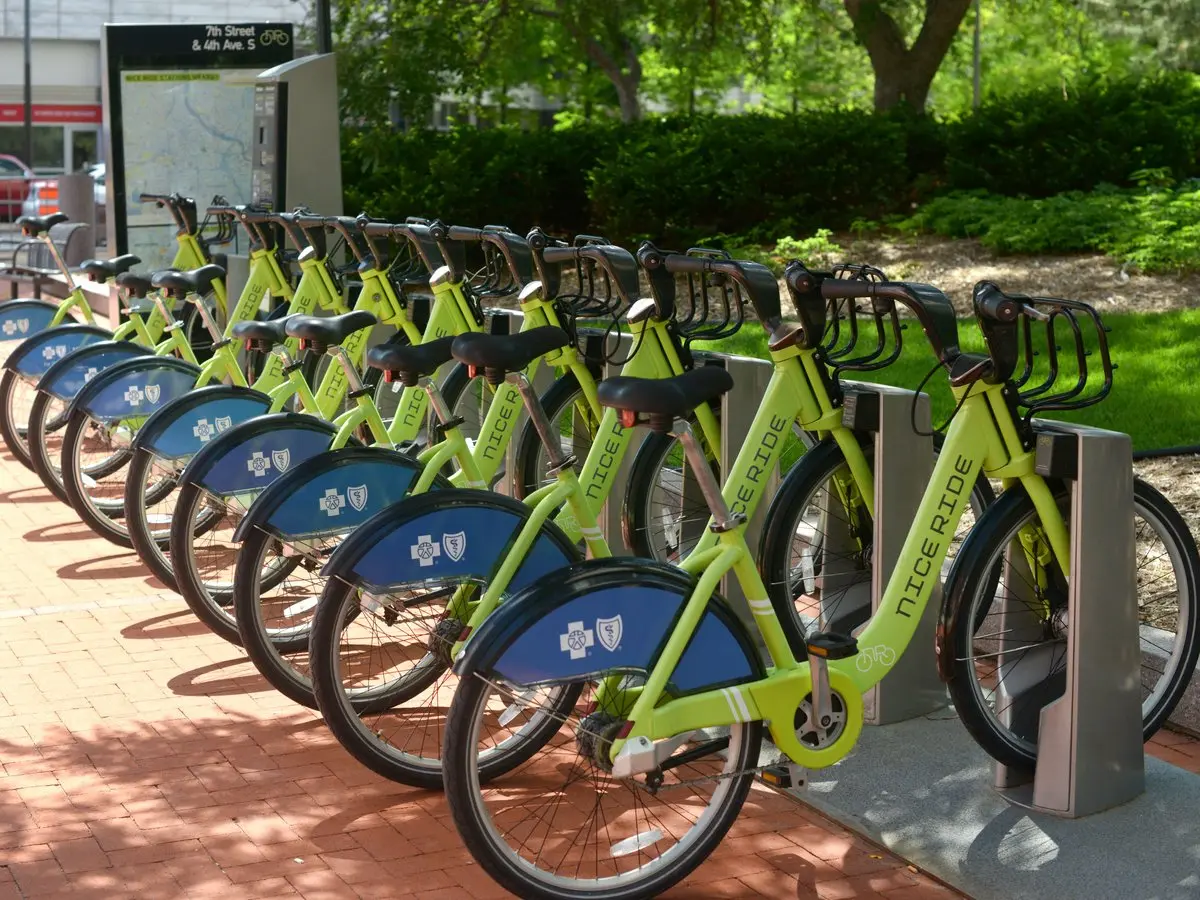
Bike sharing is a critical part of the transportation system. It reduces greenhouse gas emissions and ensures residents have affordable first/last-mile travel options. Despite this need, the current privatized patchwork of bike-sharing in the Twin Cities inherently fails to provide affordable and equitable access to micro-mobility. Bike-share options are expensive and have spotty coverage areas, with little coordination across city boundaries. This was exacerbated by the closure of Nice Ride after 13 years.
Privatized bike sharing inherently fails to achieve the same levels of use that a public program could. Indeed, the major barriers to bike-share use—ubiquity, affordability, and equity–are all barriers that are reinforced by the presence of profit incentives.
The legislature should address this issue by directing the Metropolitan Council to study a publicly managed, regional bike-share program to serve Saint Paul, Minneapolis, and neighboring suburbs. This study would direct the Met Council to evaluate regional bike-share programs in other cities to help determine the potential cost and ensure best practices in implementation.
A Met Council-managed regional bike/scooter sharing program would provide a major benefit for the environment, the economy, and equity. A public bike-sharing program would increase transportation access across socioeconomic strata while also allowing for increased transparency and public accountability on issues such as coverage areas and affordability. A Met Council-run bike-share program would ensure that bike-share seamlessly complements the transit system. Fare cards could be used to pay for bike-share. Bike-share stations would be placed near both busy stations and gaps in the transit system. A Met Council-run regional bike-share system would also ensure better coordination between neighboring cities, ensuring a person can use bike-share to travel across city boundaries.
Ask your legislators to reform state speed limits.
Take action and contact decision-makers.